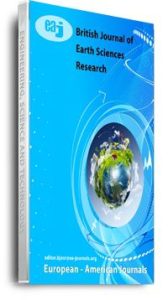Developing and Optimizing Media Formulations Using Agro waste for the Production of Fungal Secondary Metabolites, Specifically Vitamin B12
Keywords:
Agro waste, vitamin B12, optimization, Aspergillus niger, 5-6 dimethylbenzimidazole, CobaltAbstract
Vitamin B12 is a water-soluble compound that is essential for human health, typically sourced from animal products or synthesized through microbial fermentation. This study explored the formulation of mycological media from agro waste for production of Vitamin B12. The media formulated were agro waste from sugarcane and sweet potato (SSP) and sugarcane and cassava (SC). Experimental condition variables including different percentages (1% and 2%) of carbon (Na3C6H5O7) and nitrogen (NaNO3) source, hydrogen ion concentration (pH:5,6,7and 8), different ratios of 5-6 dimethylbenzimidazole (5,6-DMB) and cobalt (Co) and temperature (30oC and 37oC) were optimized using standard procedures in order to enhance microbial production of vitamin B12. The fungi Aspergillus niger (A. niger) strains screened for production of vitamin B12 were obtained from soil sample collected from hospital dumping sites. Statistical analysis of data was done using ANOVA and results were presented as means ± standard deviations. Results obtained from optimization showed that temperature, pH, and different percentages of carbon and nitrogen have significant (p ≤ 0.05) effects on fungal growth as well as its production of secondary metabolite (vitamin B12). The result also showed that the effect of different ratios of DMB and Co on vitamin B12 production was significant (P<0.05). The optimum conditions for the growth of A. niger and synthesis of its secondary metabolite were observed at temperature 30oC (0.4µg/ml±0.006), pH 7.0 (0.92µg/ml±0.007) DMB and Co ratio 80: 0.75 mg (0.94µg/ml± 0.006) in SC medium. The outcome of this study has indicated that vitamin B12 would be effectively produced by A.niger strains using formulations of agro waste: Sugarcane and cassava media supplemented with appropriate percentage of carbon and nitrogen, adequate ratio of DMB and Co and incubation at optimum temperature and pH values. These findings have significant implications for the food, pharmaceutical and biotechnology industries.



